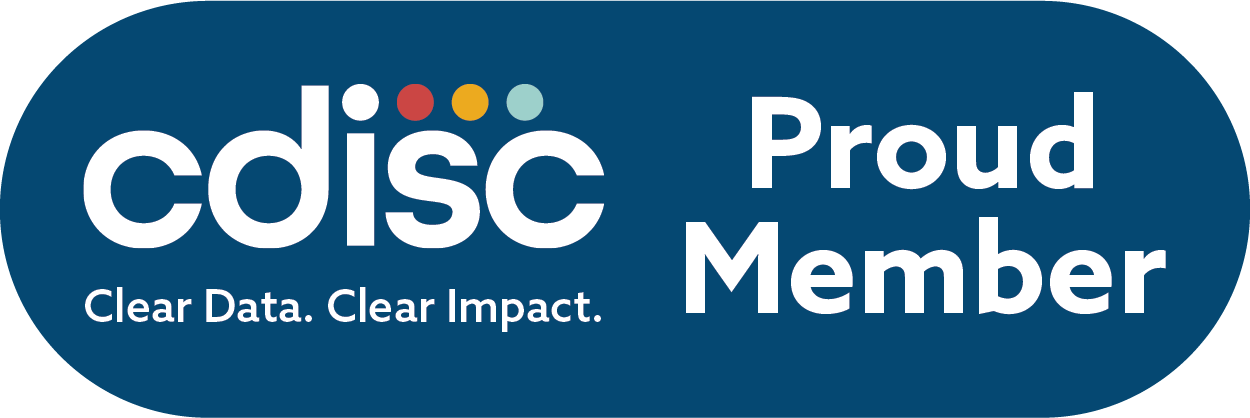Ensuring patient’s privacy: data sensitivity in Pharma
Ensuring patient’s privacy: data sensitivity in Pharma

Patient's Privacy
Patient's Privacy
Patient's Privacy
By Narrativa Staff
What is data sensitivity?
Data sensitivity refers to the degree of confidentiality that certain information requires. Examples of sensitive data include any information that has the potential to identify a person, including personal addresses or medical conditions. The General Data Protection Regulation (GDPR) defines sensitive data as a “special category” that includes racial information, political opinions, personal beliefs, trade union membership, genetic data, biometric data, health data, and sexual orientation.
Inevitably, certain industries, such as healthcare providers and government entities, deal with a higher rate of sensitive information than others.
Why protecting sensitive data matters
Regulations such as the General Data Protection Regulation (GDPR) in the European Union, the Data Protection Act (DPA) in the UK, and the Patient Safety and Quality Improvement Act (PSQIA) in the US provide strict and precise guidelines on how a provider should protect the sensitive data of its users. Violations are penalized with fines reaching millions of dollars. However, harsh penalties are not the only reason companies are interested in safeguarding users’ sensitive data. Here are some reasons why protecting sensitive data is of fundamental interest to service providers:
-
It protects the reputation of the company
Complying with data protection regulations is not only a legal obligation but also reflects a company’s commitment to safeguarding its clients. Ensuring the maximum level of protection, often beyond the minimum threshold required, enhances consumer confidence in the provider entrusted with personal information. An intentional or unintentional breach of client trust, along with their data and privacy, can cause unquantifiable damage, decreasing the reliability of the business and potentially hindering its position in the market with long-term effects.
-
It reduces the risk of cyberattacks
Adopting measures to safeguard clients’ sensitive data, while complying with prescribed regulations, allows companies to protect themselves from cyberattacks. Data protection regulations provide guidelines on how to effectively protect data, including specific security measures such as data encryption, a detailed incident response plan, and data anonymization to transform personal data in a way that individuals cannot be identified, thus effectively protecting user privacy.
-
It is a legal shield for companies
Security consciousness is essential, as an intentional or unintentional data breach can result in thousands of lawsuits. Data anonymization and third-party access strategies allow companies to significantly reduce their legal liability. In the event of a data breach, anonymized data reduce the risk of clients’ personal information being exposed, thus reducing the likelihood of lawsuits from affected individuals. Additionally, complying with data regulations and adopting a professional approach to data anonymization and risk management allows companies to respond to potential breaches quickly and effectively, without disrupting business operations and containing any damages.
Key aspects of data regulations
Despite each country developing its legislation to regulate consumer data, the EU General Data Protection Regulation (GDPR) is known for its efforts to harmonize data privacy across Europe and for influencing subsequent legislation in other countries.
Some of the key data protection principles of the GDPR include:
- Lawfulness, Fairness, and Transparency: Data must be processed legally, fairly, and transparently.
- Purpose Limitation: The purpose for data collection must be specific, explicit, and legitimate.
- Data Minimization: Data collected must be adequate, relevant, and limited to what is necessary.Accuracy: Data must be accurate and updated.
- Storage Limitation: Data must be kept in a form that permits identification of data subjects for no longer than necessary.
- Integrity and Confidentiality: Data must be processed in a manner that ensures appropriate security.
When it comes to sensitive data, processing requires explicit consent from users, which must be specific, informed, and unambiguous. Additionally, businesses are required to conduct Data Protection Impact Assessments (DPIAs) to assess and mitigate potential risks to individuals.
Relying on trustworthy Generative AI companies to prevent breaches
Ensuring compliance with all regulatory requirements can be complicated, especially in the pharmaceutical industry, where vast amounts of data are added and analyzed daily. Each time a new client is added to a platform, when clinical data is collected to approve a medication or treatment, or when marketing campaigns are launched, sensitive information is collected and stored.
For this reason, companies need to rely on a company that not only satisfies their operational needs but also ensures the maximum level of protection for clients who have entrusted the pharmaceutical company with their data.
Narrativa can ensure this level of protection and guarantee that no errors occur:
Narrativa automates the anonymization and data protection mechanisms, ensuring that the same standard is maintained over time without requiring additional time or operational costs from the companies.
Narrativa specializes in services provided to pharmaceutical companies; as a leader in providing the best solutions for companies operating in the industry, it is aware of all the challenges businesses can face when safeguarding data and it is an expert in ensuring its systems meet the required standards.
Matilde Romagnoli
About Narrativa
Narrativa® is the global leader in generative AI content automation. Through the no-code Narrativa® Navigator platform and the collaborative writing assistant, Narrativa® Sidekick, organizations large and small are empowered to accelerate content creation at scale with greater speed, accuracy, and efficiency.
For companies in the life sciences industry, Narrativa® Navigator provides secure and specialized AI-powered automation features. It includes complementary user-friendly tools such as CSR Atlas, Narrative Pathway, TLF Voyager, and Redaction Scout, which operate cohesively to transform clinical data into submission-ready regulatory documents. From database to delivery, pharmaceutical sponsors, biotech firms, and contract research organizations (CROs) rely on Narrativa® to streamline workflows, decrease costs, and reduce time-to-market across the clinical lifecycle and, more broadly, throughout their entire businesses.
The dynamic Narrativa® Navigator platform also supports non-clinical industries such as finance, marketing, and media. It helps teams drive measurable impact by creating high-quality, scalable content on any topic. Available as a self-serve SaaS solution or a fully managed service, built-in AI agents enable the production, refinement, and iteration of large volumes of SEO-optimized news articles, engaging blog posts, insightful thought leadership pieces, in-depth financial reports, dynamic social media posts, compelling white papers, and much more.
Explore www.narrativa.com and follow on LinkedIn, Facebook, Instagram, and X. Accelerate the potential with Narrativa®.




